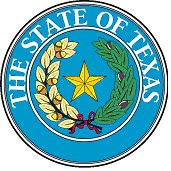Monday, July 30, 2012
Need an Off-Grid Survival Retreat?
Thursday, September 16, 2010
Buying Land for a Prepper Retreat
I recently purchased a very rural piece of property. The farm was 87 acres and had been used for generations as a producing farm. The former owner was aged and unable to maintain the farm. The price was right and negotiable, and so were the other prepper retreat criterion. The area has…
· Plentiful water--preferably spring fed or an artesian well. (Pumped well water would be an inferior second choice.)
· Good exposure for gardening and photovoltaic’s.
· Temperate climate that offers a lengthy growing season.
· Plentiful game and the opportunity to hunt it.
· Likeminded neighbors.
· Not on a flood plain.
· Southern exposure.
· “Panoramic views.” This usually means a hilltop location with defendable terrain.
· A low crime, socially conservative, practicing Christian population, diverse and healthy local economy. (See the City Data web site to do your research on demographic information.)
· Remote area that is not near population centers and is not in the path of real estate developers.
· Look for property that has an existing house, even if it is old, it can most often be modernized.
· Low housing costs. As discussed in detail in some of my previous blog posts, don’t overlook examining as many factors as possible including home and car insurance rates, property taxes, and so forth. This useful Internet tool compares cost of living in two cities.
· My personal preference is to select a retreat in a mixed farming/ranching/timber region in low-humidity area.
Alone I could not afford to buy this land outright, and I did not want to go into debt to purchase the property. So what to do?
In my church there are five very middle class families that are paying attention to the state of our nation’s fiscal policy. We have been prepping for some time and longed to extend our preparations to a place where we could retreat if the need ever presents itself.
We began shopping together, looking for the perfect place. It took some time but eventually the right place was found. When it became evident that the farm was what we were looking for, we pooled what money we had, and bought it. This was a good solution for our group; however I would not make this kind of arrangement with just anyone. The people I partnered with…
· Have a common world view. (Biblically, politically, and socially conservative.
· Have complementary skill sets. (Engineer, Attorney, Registered Nurse, Chemist, Minister, Farmer)
· Are mature enough to work through problems.
· Each of us have a deeded parcel of the property that is uniquely our own.
· Each are hardworking, self motivating, people.
If you would like to get out of dodge when TSHTF but can’t afford to do so? Consider creating a partnership with likeminded friends.
CK in
Wednesday, November 19, 2008
Buying Land in Texas for A Retreat?
What is a Land Deed?
The definition of a Land Deed in Texas is the same as most everywhere else. It is a legal document designed to transfer real estate property in the State of Texas. There are two types of deeds which are primarily used for the transfer of ownership of land in Texas. The first one is the Warranty Deed and the other one is the Quit Claim Deed.
The Warranty Deed
The Warranty Deed lives up to its name. It is used when the seller of Texas land uses the Deed to make certain guarantees to the buyer of Texas land. There are three basic parts (or covenants) associated with the Warranty Deed.
1.) The Covenant of Seishen in which the seller of Texas land guarantees that they own the piece of Texas land they are selling to the buyer and that they, indeed, have the right to sell it.
2.) The Covenant Against Encumbrances, in which the seller of Texas land guarantees to the buyer of Texas land that the Texas property they are selling (or the piece of Texas land) is free of encumbrances or claims against it such as mortgage liens, tax liens or any other form of liens.
3.) The Covenant of Quiet Enjoyment in which the seller of Texas land guarantees to the buyer that, after the sale, should anyone show up and try to lay claim to the piece of Texas land that has been purchased by the buyer, the seller will defend the buyer’s rights to the Texas land they have bought from the seller.
Generally speaking a seller and buyer are free to negotiate and agree to alter any of the terms and conditions of a Warranty Deed until they are both satisfied with it, but, in principal, these are the three parts to it.
Quit Claim Deed
Compared to the Warranty Deed a Quit Claim Deed contains none of these guarantees. The basic situation here is that the seller of the Texas piece of land or Texas property tells the buyer: “If I own this piece of Texas land or Texas property, I am selling it to you and you take it “as is.” This is the classic caveat emptor situation – Buyer Beware!
So be careful when purchasing land for your retreat or bug-out location. Make sure you are actually getting what you are paying for and a guarantee that is worth something.
Be aware. Be prepared. Be informed.
Riverwalker







